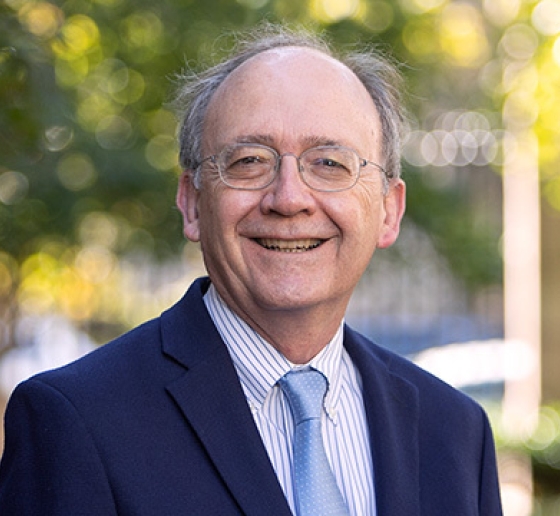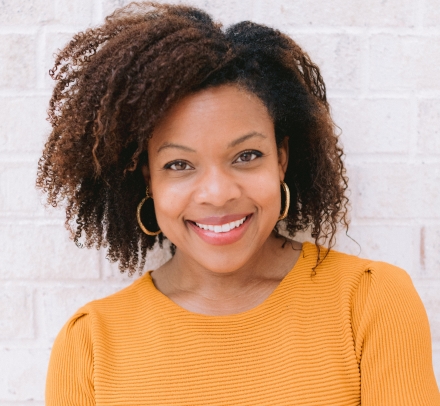Guiding a Generational Change in Clinical Education
Philip Genty, vice dean for experiential education, is working to integrate Columbia Law School’s experiential learning with the broader curriculum.

Philip M. Genty has always told his law students that anything worth undertaking is going to bring a little bit of anxiety.
“That’s a good sign because it means, OK, this is a good challenge,” he says.
When Genty, Everett B. Birch Innovative Teaching Clinical Professor in Professional Responsibility, was named vice dean for experiential education in January, he recognized the role as one of those good challenges: He was “intimidated but thrilled” to take on the job.
Now Genty is working in concert with the Clinical Appointments Committee, headed by Clinical Professor of Law Colleen F. Shanahan, to make sure the Law School consistently provides clinics in core areas of study and that Columbia’s range of experiential offerings is fully integrated with the overall curriculum. He hopes, for instance, to enhance the importance of the first-year Legal Practice Workshop, which he views as the beginning of experiential learning for students.
One of three faculty vice deans, Genty oversees clinics, externships, simulations, and the legal writing program, and he is head attorney for Morningside Heights Legal Services, the public interest law firm comprising the clinics. As if that were not enough, he also is teaching Civil Procedure, Legal Methods II, a leadership seminar, and a workshop this year.
“I like feeling that I can be useful to the institution,” Genty says. “I like being aware of the different things that are going on. I like the new challenges.”
Developing Clinics That Serve Clients—and Students
Columbia Law began offering legal clinics more than 50 years ago, but the position of vice dean for experiential education dates only to 2018, when Brett Dignam, Clinical Professor Emerita of Law, established the role.
“Any time you have to create a position from scratch, it’s a pretty heavy lift,” Genty says. “And she did that with wonderful grace and skill.”
Genty has taken on the vice dean job at a time when the clinical faculty is undergoing significant change: Recently several clinical faculty members have retired or announced retirements, and several more have joined, including Shanahan, Amber Baylor, Christopher Morten, and Lynisse E. Pantin.
“It’s an exciting transitional time,” says Genty, who calls himself “a little bit of a bridge between the past and the future.”
Among the goals for Genty and the appointments committee are to maintain clinical offerings in particular fields such as criminal and family law and to be less reliant on funding or on the expertise of individual faculty members for clinic offerings. He plans to take a similar approach with externships. The emphasis is on “what our needs are,” Genty says, and “not just who’s retiring, but where is the demand [from students], and what should be the [subject] mix?” Recent results of this approach: the Criminal Defense Clinic taught by Baylor and the Health, Science, and Information Clinic taught by Morten.
“More and more, we’re looking at curricular need as a starting point and then going from there. Chris and Amber are wonderfully exciting colleagues, and they were also teaching in the areas that we saw as priorities,” says Genty.
In developing new clinics, Genty is interested in building offerings that appeal to law students who aren’t necessarily planning to go into public service careers (such as Morten’s intellectual property clinic) and others that pioneer a new area of representation.
Identifying new clinic areas has been a strength at Columbia, he says. “A lot of times it’s about coming up with a really interesting practice idea and trying that out.” One example is the clinic Genty co-founded that represented incarcerated clients and their families. Another is the Adolescent Representation Clinic, led by Jane M. Spinak, Edward Ross Aranow Clinical Professor of Law. Spinak intends to retire in June, and establishing a new family law clinic is “a high priority for me personally,” Genty says. “I’d very much like to keep this tradition going. It has been an important part of the curriculum, and it has provided essential legal services to underserved clients and a powerful learning experience for our students.”
Teacher, Scholar, Mentor
Genty has taught and mentored students since he joined Columbia Law, in 1989. He served as the longtime director of the Harlan Fiske Stone Moot Court Competition, and he has twice been honored for his teaching: He has won the Willis L.M. Reese Prize for Excellence in Teaching and the Columbia University Presidential Award for Outstanding Teaching.
“What I loved about teaching clinics full time is how well I got to know the students. I formed a lot of really lasting relationships,” he says. “What I love about teaching Civil Procedure is getting to meet so many of the students in their first year, as they’re just beginning, introducing them to [law classes], trying to make it challenging—while at the same time offering a little bit of a safety net for them.”
What will he love about being vice dean? If his proposals succeed, “All of us [in the Law School leadership] will be able to explain the rationale of what we’re offering better than we’re able to do now,” Genty says. “We’ll have talked about it and thought about it and thought about the choices we’re making. The experiential program as a whole will be more integrated than it is now.”
